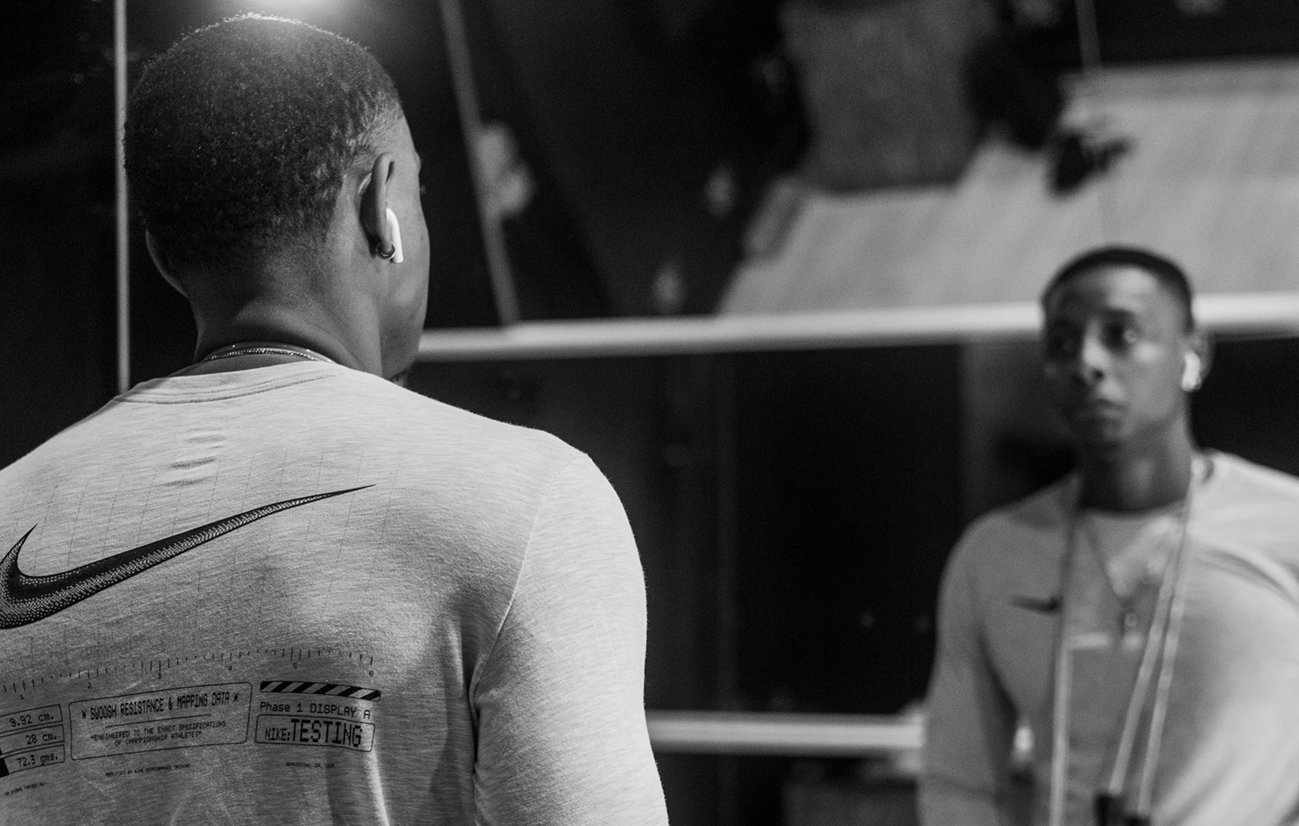There's an Imposter Among Us: How to Combat Imposter Syndrome

Published
Are you the real deal or an imposter? If you have ever wondered whether you were not good enough or a fraud in your field, you are not alone. Research suggests that upwards of 80% of people have experienced imposter syndrome at some point in their life (Bravata et al., 2020). Imposter syndrome, a term first coined in the late 1970s, refers to a pattern of behavior that leads individuals to doubt their abilities, often experiencing constant fear of being exposed as a fraud (Huecker, 2023). Relatedly, self-sabotage, in this context, means to intentionally create hindrances to one’s goals or achievements. These patterns of thinking can manifest in sport and other performance areas, especially when we feel as though we are not as talented as our peers or those we are competing against. For example, even if we receive praise for our efforts, there may still be this nagging voice in our minds telling us we might not be good enough. Doubting our abilities internally can manifest into external destructive behavior.
Imposter syndrome can occur in a variety of situations, and there is no “one size fits all” look. According to Wilding (2020), thinking patterns that could be a sign of imposter syndrome include:
- Fear of being exposed as “not good enough”
- Worry about not living up to expectations
- Thinking teammates are more talented
- Second guessing decisions
- Avoiding feedback for fear of being judged
Strategies for Addressing Imposter Syndrome
Successfully addressing imposter syndrome takes practice. Self-talk, imagery, cognitive reframing, and time in silence are a few tools we can use to build self-confidence, which is a trait that can help combat imposter syndrome. These skills can be practiced daily to minimize feelings of imposter syndrome.
- Self-talk is your internal dialogue that includes a combination of your thoughts, beliefs, questions, and ideas. It can be positive or negative. The tone of self-talk is important when aiming to change our inner thoughts. Using simple phrases such as “I am enough”, “I have prepared for this”, or “I can overcome this obstacle”, can sometimes make a huge difference when trying to enhance our self-confidence (Holland, 2020). Posting positive affirmations on a mirror, by your alarm clock, or on your refrigerator can help you to remember to think more productive thoughts.
- Cognitive reframing is about changing your perspective on a situation. An example of this is a college ultimate frisbee player who feels a level of imposter syndrome because of the skill level of the other players on the team. Cognitive reframing can be used in this instance to restructure thoughts of potentially being exposed as a fraud. Instead of “it is just a matter of time until they figure out I cannot throw as far as my teammate,” this player might think, “This is an opportunity to learn a new skill so that I can throw just as far as anyone on the team.” Remembering also the uniqueness of the abilities the player has to contribute to the team and why they were a part of the few chosen to be on the team can assist in overcoming imposter syndrome in this instance. Each failed experience offers an opportunity to learn from that failure and turn it into a success (Morin, 2023). Reframing the negative is a great way to support the changes in your thoughts until they replace the negative thought and perceptions that led to imposter syndrome.
- Imagery utilizes our brain’s ability to create vivid mental representations of the inner workings of our minds. Taking time to visualize your successes through imagery is another way to minimize self-doubt. At times when we feel like we are in a world out of our control, remember that we are in control of our own thoughts and mental imagery can assist in bringing us back to that mindset. An example of this is visualizing being the best version of you on game day. No matter the scenario, what does greatness look like for you? What is your unique contribution to the team? In which situations are you most likely to have a positive impact on? Visualizing those scenarios can eliminate feelings of self-doubt come game day (Stein, 2013).
- Taking time to block out the noise looks like spending uninterrupted time with yourself - sitting in positivity, utilizing words of affirmation, or even allowing complete silence to hold space for the present moment. In a world where social media is pervasive, it is easy to give our attention to others (often, unnecessarily) and these social comparisons tend to not serve us. Taking time in silence to reflect, journal, or meditate can help you to become aware of your ineffective thoughts so you can work to change your thinking.
Lastly, it is important to recognize that we should allow space for ourselves to feel proud about our accomplishments and that we are deserving of recognition. The confidence built in sport can be carried over into other areas of our lives such as relationships with friends and family, our jobs, or even hobbies. To perform at a high level in anything we do, we must be well mentally. Once we reframe our mentality in a positive, effective way, our physical selves will be more prepared to step up to challenges. Remember that this action, along with others, takes practice. Develop a rhythm of regularly checking into these areas of your life and make these habits. Take the time to explore and see what strategies and resources work for you. Find comfort in the uncomfortable spaces of your mind, only then will change happen. Discover your excellence and own it!
References
- Bravata, D. M., Watts, S. A., Keefer, A. L., Madhusudhan, D. K., Taylor, K. T., Clark, D. M., Nelson, R. S., Cokley, K. O., & Hagg, H. K. (2020). Prevalence, predictors, and treatment of impostor syndrome: A systematic review. Journal of General Internal Medicine, 35(4), 1252–1275.
- Huecker, M.R., Shreffler, J., McKeny, P.T., & Davis, D. (2023). Imposter phenomenon. Treasure Island, FL: StatPearls Publishing.
- Wilding, M. (2021). Tame self-sabotage and cultivate self-confidence. Talent Development, 75(9), 78–80.
Additional Resources
- Holland, K. (2020, June 27). Positive self-talk: Benefits and techniques. Healthline. Positive Self-Talk
- Morin, A. (2023, May 10). How cognitive reframing works. Verywell Mind. Cognitive Reframing
- Stein, T. (2013, June 18). 7 tips for creating positive mental imagery. Psychology Today. Creating Positive Mental Imagery
Share this article:
Published in:





